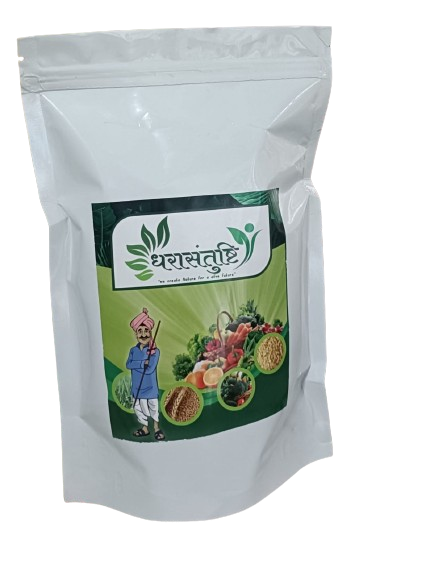
Dharasantushti Vermicompost
Vermicompost is an excellent organic fertilizer rich in nutrients. It is made by decomposing vegetation and food waste etc. by insects like earthworms. Vermicompost does not stink and flies and mosquitoes do not grow and the environment is not polluted.
When an unknown printer took a galley of type and scrambled it to make a type specimen book. It has
survived not only five centuries, but also the leap into electronic typesetting, remaining
essentially unchanged.
Advantages
More Benefits
- It not only increases the fertility and aeration of the soil, it also increases the water-absorbing capacity of the soil.
- Giving vermicompost leads to higher yields.
- In the land with vermicompost, weeds grow less and the plants suffer less from diseases.
- Exchange of ions between plants and soil increases.
- In fields using vermicompost, the production of different crops can increase by 25-300%.
- The amount of nutrients in the soil increases.
- In soil containing vermicompost, the ratio of nitrogen, phosphorus, and potash is 5:8:11, hence sufficient nutrients are easily available to the crops.
- The feces of earthworms contain peritropic membranes, which prevent evaporation of soil by sticking dust particles to the soil.
- 85% of the body of earthworms is made up of water, hence even in drought conditions, they can survive despite less water in their body and provide nitrogen to the soil after death.
- Vermicompost increases organic matter in the soil and provides continuity to biological activities in the soil.
- By using it the land becomes fertile and fertile.
- It destroys termites and other harmful insects in the field. This reduces the cost of pesticides.
- After its use, the availability of nutrients remains for 2-3 crops.
- Due to the activity of earthworms in the soil, a suitable environment is maintained for the roots of plants, due to which their proper development occurs.
- It is prepared from garbage, dung, and crop residues, which does not pollute the environment.
- Its use reduces the cost of irrigation.
- The fertility of soil which is decreasing due to continuous use of chemical fertilizers can be increased by its use.
- Its use improves the quality of fruits, vegetables, and grains, due to which the farmer gets a better price for the produce.
- Microorganisms found in earthworms balance the pH of the soil.
- Consumers get nutritious food.


